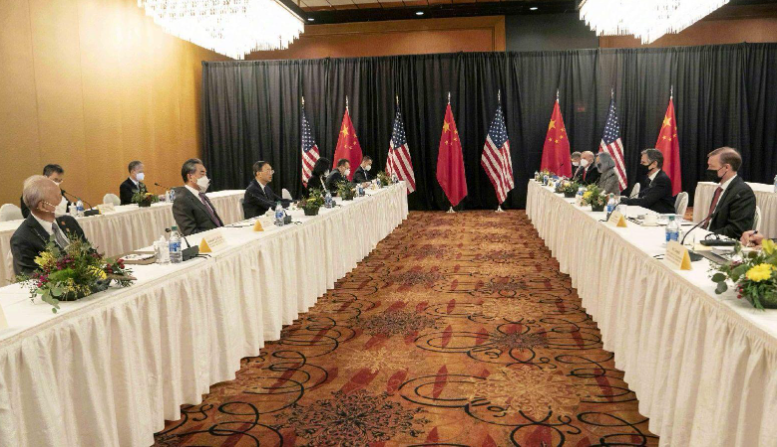Wu Zurong, Research Fellow, China Foundation for Int'l Studies
Mar 24, 2021
Regrettably, Joe Biden, the new president of the United States, has failed to pick up on changes in global realities in which American values do not fit for many other countries. The U.S. should work on putting its own house in order and meanwhile mind its own business.
Wang Yiwei, Jean Monnet Chair Professor, Renmin University of China
Mar 24, 2021
The problems the United States has with China boil down to several basic misunderstandings, starting with the fact that Marxism in China bears little resemblance to outdated Soviet ideology. The CPC should be understood from the perspective of human civilizations and, especially, Chinese civilization.

Li Yan, Director of President's Office, China Institutes of Contemporary International Relations
Mar 24, 2021
Prudence and pragmatism should guide China’s approach in the wake of initial talks that featured some hard-nosed rhetoric. Whether the meeting kick-starts new China-U.S. engagement or only serves to maintain — or even heighten — tensions remain to be seen.

Shen Dingli, Professor, Institute of International Studies, Fudan University
Mar 24, 2021
The negativity of China-U.S. talks in Alaska risks a further downward spiral and an unhealthy new normal. But it’s an improvement over the Trump era. If the parties keep expectations low and maintain mutual respect, they should be able to replace their free-falling relationship with a more stable one.
Dan Steinbock, Founder, Difference Group
Mar 22, 2021
In contrast to the hopes of moderate bipartisan voices, Blinken's China vision builds on the Trump-Pompeo unipolarity, at the expense of U.S. business and American people. The semiconductor debacle is a prelude to the future.
Yang Wenjing, Research Professor, Institute of American Studies, CICIR
Mar 17, 2021
The U.S. secretary of state suggested subtly that democratization is still a U.S. strategic goal with regard to China, as well as securing American leadership in technology. All in all, the policies of the Biden administration differ little from those of Donald Trump.
Leonardo Dinic, Expert in Geopolitics and International Business, the Future of Work, and Emerging Technologies
Mar 16, 2021
Former Secretary of State Mike Pompeo's final days in power saw him apply pressure to Beijing on sensitive issues. It is likely that President Biden will expand and refine Donald Trump's China policy to include additional economic and humanitarian demands.
Philip Cunningham, Independent Scholar
Mar 11, 2021
Australia is an outlier - its geography makes it a Pacific power, yet culturally, it is a part of the West. Former Australian Prime Minister Kevin Rudd is poised to give a nuanced perspective on the rise of China - but will global leaders follow suit?
Joseph S. Nye, Professor, Harvard University
Mar 11, 2021
When China’s foreign minister, Wang Yi, recently called for a reset of bilateral relations with the United States, a White House spokesperson replied that the US saw the relationship as one of strong competition that required a position of strength. It is clear that President Joe Biden’s administration is not simply reversing Trump’s policies.
Wang Zhen, Professor and Deputy Director, Institute for International Relation Studies, Shanghai Academy of Social Sciences
Mar 11, 2021
China bashing has become a new form of political correctness in the United States. Despite Biden’s rhetoric, it's not clear that he can do away with Trump’s toxic legacy and rebuild the political and social basis of China-U.S. relations.
Back to Top

- China-US Focus builds trust and understanding between the U.S. and China through open dialogue among thought leaders.
- Our Offerings
- Topics
- Videos
- Podcasts
- Columnists
- Research Reports
- Focus Digest
- Stay Connected
-
Thanks for signing up!
- Get the latest stories from China-US Focus weekly.